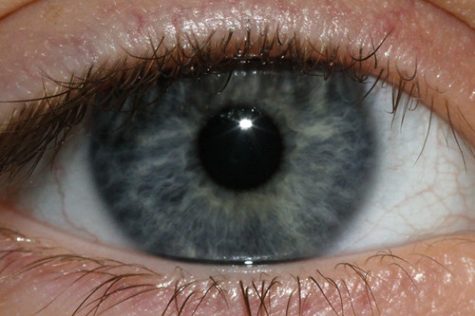The Tell-Tale Heart: Mad Man or Misunderstood?
“The Tell-Tale Heart” is one of Edgar Allen Poe’s most psychological and overwhelming pieces. He brings to the table not only a world so real it seems it could come from our very Earth, but also the paradox between love and what you have to do, even to those you do love. Many have debated the biggest controversy in the story; was the narrator mad, or simply misunderstood?
You must consider all aspects of this story to determine such question; starting from the beginning. The narrator begins with saying he is not mad, not insane. His heightened senses are proof of his sanity. Heightened senses can be caused by a surge in adrenaline, allowing the subject to be more aware of what is around them, usually stemming from the fight-or-flight response. This could be the reason he thinks he has “supersonic” senses.

His dislike of the old man’s eye likely stemmed from ommetaphobia, which can be passed down genetically or triggered by traumatic event. The way the narrator perceives the eye is that it is an evil, bird-of-prey-like eye, that brings down upon him terror. Not only does the way he describe it make it sound like ommetaphobia, but his solution as well. This is albeit an extreme solution, but people with phobias often do the easiest thing they can. Avoid them. To him, the best way to avoid the eye was to remove it. Because of his terror, he was partially blinded from seeing the immorality of killing this man just to remove the eye.
Now, the interesting part. His plan to kill the man and get rid of the eye once and for all. Would a mad man not simply just walk up to the old man and kill him? Tell me, would a mad man engineer such a very clever idea, with “what-ifs” and even a way to dispose of the body? No, I think not. The narrator creates this intricate, infallible plan. He touches every possible scenario; he begins his plan a week before the murder to throw everyone off his trail, and he plans out how to dispose of the body ingeniously. The casual way he plays off the suspicious noises are impeccable. A mad man would have simply took off through the window, and likely caught. But no, not the narrator. He puts on an act that even some sane people can’t pull off, and he fooled the police men.
The final part is what convinces most people how crazy the narrator is. Hearing a dead man’s beating heart? He must be mad! That is quite untrue, if you think about it for a minute. The narrator has been treating the old man well the past week, being very kind and growing a relationship with him, even if the narrator doesn’t realize. Even if he hadn’t known the old man, killing someone leaves a mark in your heart. Now imagine you’ve just killed your friendly, lovable elder neighbor. That would definitely leave scars, and even the most emotionless would feel guilt and maybe even some regret. That is what the narrator felt when he heard the beating heart. It was his sin coming back, haunting him, making him feel awful, making him feel guilty. Eventually he can’t take the guilt, and he confesses to the murder, and explains where the body was. Does it not make sense, then, that the narrator simply heard his own confessions, and not a figment of his imagination?
To think, in this day and age we would have cameras installed, better security in our homes. The narrator would have never been able to murder the old man now, but he isn’t in present time. He is in a much older, less technological time, so for him to be able to think out a plan, and execute it with such accuracy; incredible and possible for his times.
It is for theses reasons that I conclude the narrator in “The Tell-Tale Heart” was of sane mind. He was a sinner, sure, but a guilty one. He was a clever man, not a crazy one. He was a fearful man, not a mentally unstable one. And he was an anxious man, not a mad one.
RELATED STORIES:
https://www.sparknotes.com/lit/poestories/section6/
https://www.bartleby.com/essay/Sanity-of-the-Narrator-in-The-Tell-FKPGBXZTC
https://www.dictionary.com/browse/delude
https://www.healthline.com/health/mental-health/ommetaphobia#examples










